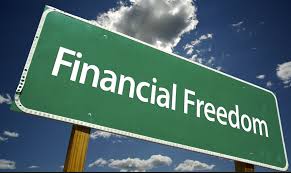Just like any goal, getting your finances stable and becoming financially successful requires the development of good financial habits. I’ve been researching this topic extensively in the last few years in my quest to eliminate debt, increase my savings and increase financial security for my family. I’ll talk more about these habits individually, but wanted to list them in a summary (I know, but I’m a compulsive list-maker).
Here they are, in no particular order:
Make savings automagical.
This should be your top priority, especially if you don’t have a solid emergency fund yet. Make it the first bill you pay each payday, by having a set amount automatically transferred from your checking account to your savings (try an online savings account). Don’t even think about this transaction — just make sure it happens, each and every payday.
Control your impulse spending.
The biggest problem for many of us. Impulse spending, on eating out and shopping and online purchases, is a big drain on our finances, the biggest budget breaker for many, and a sure way to be in dire financial straits.
Evaluate your expenses, and live frugally.
If you’ve never tracked your expenses, try the One Month Challenge. Then evaluate how you’re spending your money, and see what you can cut out or reduce. Decide if each expense is absolutely necessary, then eliminate the unnecessary.
Invest in your future.
If you’re young, you probably don’t think about retirement much. But it’s important. Even if you think you can always plan for retirement later, do it now. The growth of your investments over time will be amazing if you start in your 20s. Start by increasing your 401(k) to the maximum of your company’s match, if that’s available to you. After that, the best bet is probably a Roth IRA. Do a little research, but whatever you do, start now!
Keep your family secure.
The first step is to save for an emergency fund, so that if anything happens, you’ve got the money. If you have a spouse and/or dependents, you should definitely get life insurance and make a will — as soon as possible! Also research other insurance, such as homeowner’s or renter’s insurance.
Eliminate and avoid debt. If you’ve got credit cards, personal loans, or other such debt, you need to start a debt elimination plan. List out your debts and arrange them in order from smallest balance at the top to largest at the bottom. Then focus on the debt at the top, putting as much as you can into it, even if it’s just $40-50 extra (more would be better). When that amount is paid off, celebrate! Then take the total amount you were paying (say $70 minimum payment plus the $50 extra for a total of $120) and add that to the minimum payment of the next largest debt. Continue this process, with your extra amount snowballing as you go along, until you pay off all your debts. This could take several years, but it’s a very rewarding process, and very necessary








